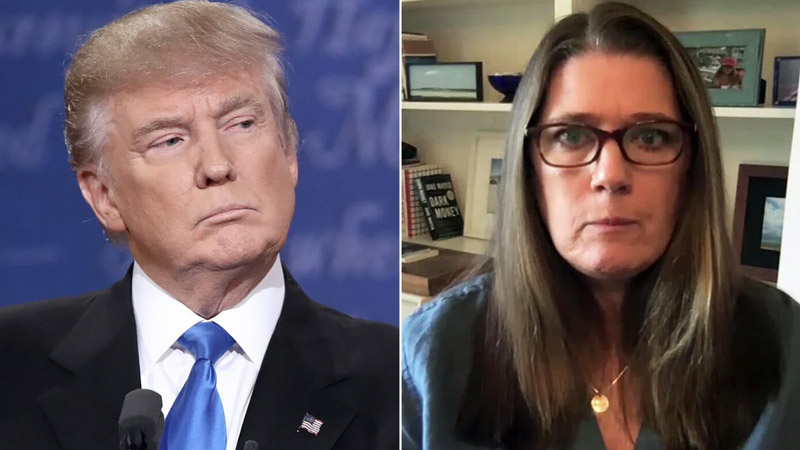Former President Donald Trump’s fixation on crowd sizes is not just a quirk of his personality but is deeply tied to a need for constant validation, according to his niece, Mary Trump, a trained psychologist. On Sunday, Mary Trump offered insights into her uncle’s psyche, explaining how his relentless desire for praise and affirmation has fueled his latest conspiracy theory about Vice President Kamala Harris’s rally crowd sizes.
This theory, which has been debunked by CNN, has even led one lawmaker to suggest that Trump is unfit for office. Mary Trump described her uncle as a “black hole of need,” attributing his behavior to unresolved issues from his early childhood. “He constantly needs to be complimented. He constantly needs to be reassured.
But the light of those compliments or the reassurances immediately gets sucked in and disappears,” she said. “In order for him to be propped up, the flow would need to be constant. It is never enough. And he needs these external supports because he can’t do it himself.” Delving into the origins of this behavior, Mary Trump revealed that her uncle’s need for constant validation stems from a lack of nurturing during a crucial period in his development, as per reports Raw Story.
“When Donald was a young child, his mother, my grandmother, was very ill. For about a year, starting when Donald was two and a half, he didn’t have a primary caregiver because she was physically and emotionally unavailable to him,” she explained. “There was nobody there to do the essential parenting that children at that extremely crucial developmental period need.”
According to Mary Trump, the absence of a nurturing figure during his formative years had a profound impact on Donald Trump. “Toddlers need to be seen; they need to be soothed. He didn’t get any of that, not only because my grandmother wasn’t there for him, but because the person who replaced her, my grandfather, was a straight-up textbook sociopath,” she said.
“My grandfather had absolutely no interest in nurturing children. He only cared about other human beings, including his own children, to the extent that they could be of use to him.” This lack of emotional support during his childhood left Donald Trump unable to develop a stable sense of self-worth, Mary Trump suggested. “As you can imagine, [this] created some serious problems for him. He was never able to construct his own sense of self-worth,” she said.
To cope with these early challenges, Donald Trump developed what Mary Trump described as “very rigid defenses against the world—against his loneliness, against the fact that there was nobody to soothe him.” She added, “As time passed, the only way he could get his father’s attention was to be hyperbolic. He had to be the best, the greatest, the smartest, the toughest—whatever it was his father required of him.”
Mary Trump’s insights paint a picture of a man whose public persona is driven by deep-seated insecurities and a lifelong struggle for validation, shaped by a childhood devoid of emotional warmth and support.

